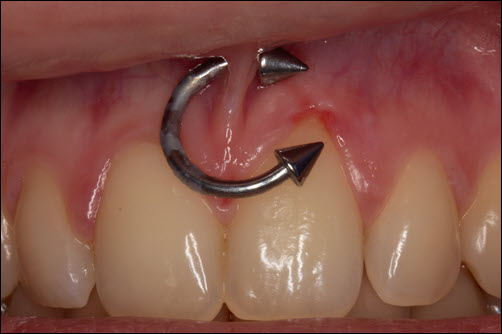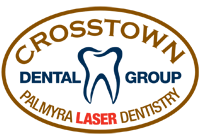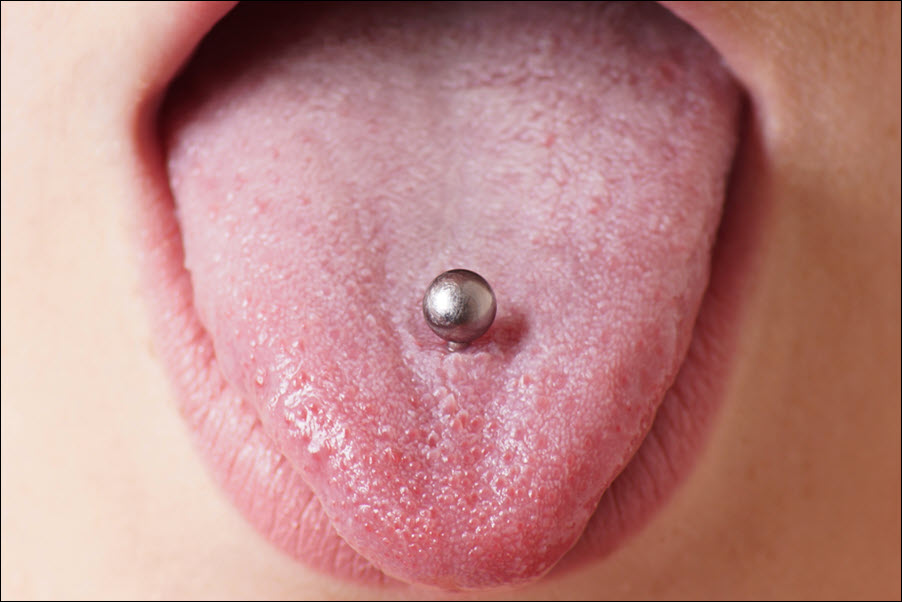How Oral Piercings Can Impact Oral Health
Oral piercings, including tongue, lip, and cheek piercings, pose risks to teeth and gums. Metal jewelry creates pressure on teeth and soft tissue, leading to enamel damage and gum recession. Piercing sites increase the risk of infection due to bacteria buildup in the mouth. Poor oral hygiene around piercings worsens plaque accumulation and causes bad breath. Nerve damage, bleeding, and speech difficulties also result from improper piercing placement. Oral piercings require proper care and regular dental checkups to prevent complications. Understanding how oral piercings affect oral health helps you protect your teeth and gums. Let’s explore the impact of oral piercings and how to reduce the risks.
Increased Risk of Infection
Oral piercings create open wounds that allow bacteria to enter the bloodstream. The mouth naturally contains millions of bacteria, which collect around the piercing site. Poor hygiene increases plaque buildup and infection risk. Symptoms of infection include swelling, redness, discharge, and pain. Severe infections spread to the jawbone and surrounding tissue. Infected piercings also increase the risk of endocarditis (heart infection) in vulnerable patients. Rinsing with salt water or antibacterial mouthwash reduces bacteria and improves healing. Keeping the piercing site clean reduces infection risk and improves tissue health. Early treatment of infection prevents complications and improves oral comfort.
Damage to Teeth and Enamel
 Metal jewelry from tongue and lip piercings frequently contacts teeth. Repeated contact chips and cracks enamel, increasing sensitivity and cavity risk. Biting down on a metal piercing causes fractures and weakens tooth structure. Damaged enamel exposes the dentin layer, making teeth more sensitive to hot and cold foods. Jewelry can also dislodge fillings and crowns, requiring costly dental repairs. Wearing soft acrylic or plastic jewelry reduces pressure on teeth. Dentists recommend removing piercings before eating or sleeping to avoid accidental damage. Protecting enamel strengthens teeth and reduces long-term dental issues. Stronger enamel improves bite strength and overall comfort.
Metal jewelry from tongue and lip piercings frequently contacts teeth. Repeated contact chips and cracks enamel, increasing sensitivity and cavity risk. Biting down on a metal piercing causes fractures and weakens tooth structure. Damaged enamel exposes the dentin layer, making teeth more sensitive to hot and cold foods. Jewelry can also dislodge fillings and crowns, requiring costly dental repairs. Wearing soft acrylic or plastic jewelry reduces pressure on teeth. Dentists recommend removing piercings before eating or sleeping to avoid accidental damage. Protecting enamel strengthens teeth and reduces long-term dental issues. Stronger enamel improves bite strength and overall comfort.
Gum Recession and Soft Tissue Damage
Piercings in the lips, cheeks, and tongue rub against gum tissue, causing irritation and recession. Gum recession exposes tooth roots, increasing sensitivity and decay risk. Receding gums weaken tooth attachment and increase the chances of tooth loss. Constant pressure from jewelry creates gum inflammation and bleeding. Tongue and lip piercings also cause soft tissue tears and ulcers. Removing the piercing or switching to soft jewelry reduces gum irritation. Treating gum recession early prevents permanent damage and strengthens gum attachment. Improved gum health reduces sensitivity and increases tooth stability. Protecting gum tissue prevents long-term dental complications and discomfort.
Nerve Damage and Loss of Sensation
Improper piercing placement damages nerves in the tongue, lips, and cheeks. Numbness, tingling, and loss of taste result from nerve injury. Lingual nerve damage affects tongue movement and taste sensitivity. Severe nerve damage causes speech difficulty and muscle weakness. Nerve injuries from piercings may heal over time or become permanent. Professional piercers reduce nerve damage risk by avoiding sensitive areas. Dentists treat nerve injuries with medication or physical therapy. Removing the piercing often reduces pressure and improves sensation. Protecting nerves ensures better speech function and overall comfort. Better nerve health improves chewing, swallowing, and taste sensitivity.
Increased Plaque Buildup and Bad Breath
Oral piercings increase plaque and tartar buildup around the jewelry site. Bacteria collect on the jewelry surface and along the gumline. Plaque produces acids that weaken enamel and irritate gums. Poor hygiene around the piercing site causes bad breath (halitosis). Regular brushing and flossing reduce plaque buildup and freshen breath. Antibacterial mouthwash kills bacteria and improves oral cleanliness. Dentists recommend professional cleanings every six months to remove tartar from hard-to-reach areas. Rinsing with water after meals reduces food particle buildup. Clean teeth and gums reduce odor and improve overall breath quality. Consistent care strengthens enamel and reduces plaque formation.
How to Protect Oral Health with Piercings
Brushing and flossing daily protect teeth and gums from plaque buildup. Use a soft-bristled toothbrush to clean around the piercing site. Rinse with salt water or antibacterial mouthwash after meals to reduce bacteria. Avoid biting down on the jewelry to prevent chipping and fractures. Remove the piercing during sleep and physical activity to avoid accidental injury. Choose soft or non-metallic jewelry to reduce gum and tooth pressure. Visit the dentist regularly to monitor gum health and plaque levels. Early detection of damage or infection prevents long-term complications. Proper care ensures better dental health and piercing comfort.
Oral piercings create a unique look but increase dental health risks. Jewelry rubs against teeth and gums, causing enamel damage and gum recession. Plaque buildup around the piercing site increases cavity and infection risk. Nerve damage from improper piercing placement affects speech and taste. Treating early signs of gum damage and plaque buildup prevents severe complications. Proper care, including regular brushing, flossing, and dental checkups, protects oral health. Removing piercings during physical activity and sleep reduces accidental damage. Investing in dental care protects teeth and gums from piercing-related issues. Healthy gums and strong teeth improve comfort and smile confidence.



